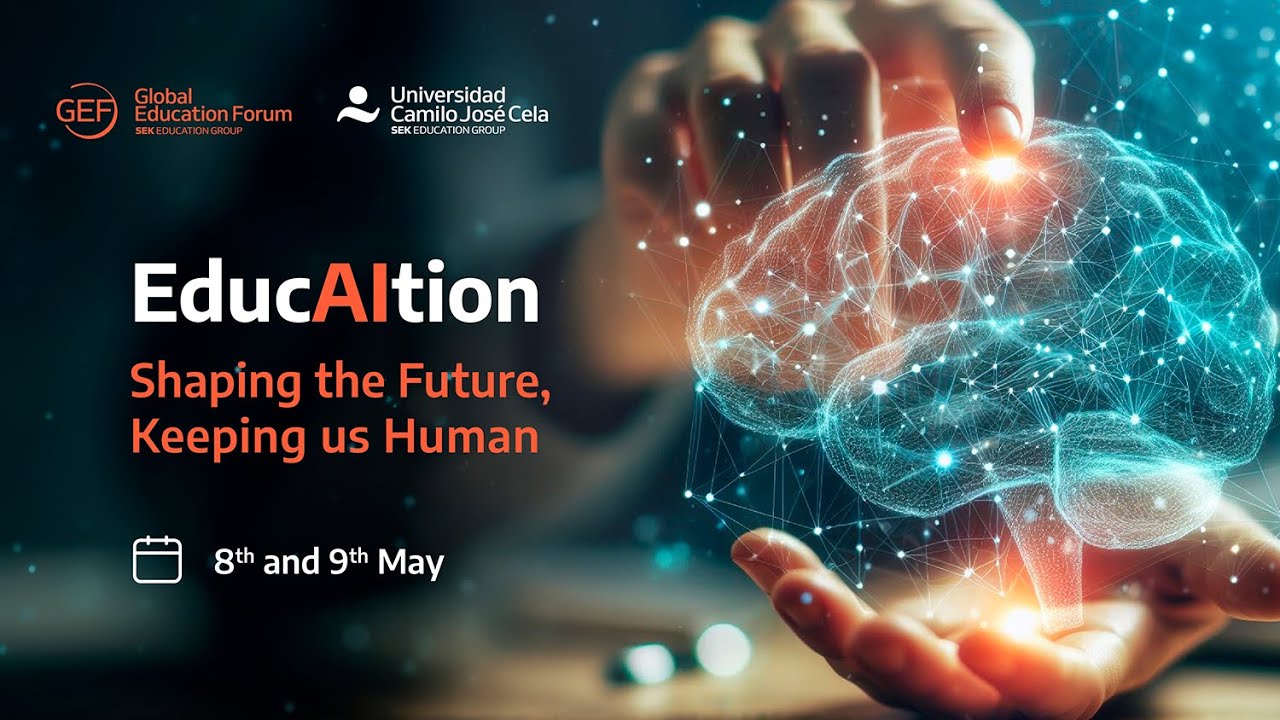Kaaris réagit à ses I.A (Chou Daddy, Aya Nakamura, Francis Cabrel..) - LE BLOC #1
Summary
TLDRThe conversation delves into the evolving role of artificial intelligence in the music industry, focusing on voice replication and its implications for authenticity and ownership. The speakers express concerns about the potential misuse of AI-generated content, such as false accusations based on fabricated audio. They highlight the challenges artists face regarding copyright issues, questioning who benefits from AI-created music. The discussion reflects a broader cultural impact, emphasizing the need for ethical considerations as technology reshapes music consumption and artist recognition.
Takeaways
- 😀 The discussion revolves around the evolving role of AI in music and its implications.
- 🎤 The speaker reflects on their personal journey with AI-generated music and its rising popularity.
- 🤔 There's a concern about the authenticity of AI-generated content and its impact on artists' originality.
- 🛑 Ethical issues are raised regarding the potential misuse of AI to create fake audio or videos for malicious purposes.
- 🎶 AI can replicate voices, leading to discussions about ownership and rights in the music industry.
- 📈 There’s a debate about the financial implications for artists when AI uses their voice in new creations.
- 🔄 The speaker mentions the blending of AI-generated music with traditional music elements as a positive innovation.
- 🎉 The conversation highlights instances where AI-generated music successfully captures listeners' attention.
- ⚠️ There are warnings about the speed at which misinformation can spread through AI-generated content.
- 🤖 Overall, the discussion emphasizes the need for a balanced approach to the integration of AI in creative fields.
Q & A
What is the speaker's opinion on the evolution of AI in music?
-The speaker expresses uncertainty about the implications of AI in music but acknowledges that it has become a significant topic of discussion. They wonder if AI will lead to positive developments or potential negative consequences.
How does the speaker feel about using AI to replicate voices?
-The speaker is cautious about AI's ability to imitate voices, suggesting that it could lead to serious issues such as false accusations or the misuse of someone's identity. They highlight the potential dangers of this technology.
What example does the speaker provide about AI in music?
-The speaker mentions an instance where an artist used the voice of another artist in a song, which became a summer hit. This example illustrates how AI can be utilized creatively, but it also raises questions about ownership and authenticity.
What concerns does the speaker raise regarding the use of AI-generated content?
-The speaker raises concerns about the ethical implications of AI-generated content, particularly regarding who benefits from it and how artists can protect their rights when their voices or likenesses are used without consent.
How does the speaker view the relationship between AI and originality in music?
-The speaker questions whether AI can produce original music and expresses skepticism about the authenticity of AI-generated content, suggesting that the lack of human input may detract from the emotional and artistic value of the music.
What is the potential psychological impact of AI-generated music on listeners?
-The speaker notes that when listeners discover that a song is AI-generated, their perception of the song may change, leading them to find it less valuable or authentic. This reflects the psychological effects of knowing the source of the music.
What do the speakers think about the future of AI in the music industry?
-The speakers seem divided on the future of AI in music. While some see it as a tool for innovation and creativity, others express concern about the risks and ethical dilemmas it presents for artists and the industry.
How does the conversation shift towards children and technology?
-The conversation shifts when one speaker shares their experience of limiting their young child's exposure to TikTok and similar platforms, expressing a desire to shield them from potentially harmful influences.
What parallels are drawn between AI in music and other forms of media?
-The speakers draw parallels between AI in music and other media, discussing the potential for misuse, such as creating fake videos or audio that could mislead or harm individuals, highlighting the broader societal implications of such technology.
How do the speakers perceive the cultural impact of platforms like TikTok?
-The speakers recognize the significant cultural impact of TikTok on children and society, noting that many kids are familiar with its trends and songs, and they express concern about the content's influence on youth.
Outlines

هذا القسم متوفر فقط للمشتركين. يرجى الترقية للوصول إلى هذه الميزة.
قم بالترقية الآنMindmap

هذا القسم متوفر فقط للمشتركين. يرجى الترقية للوصول إلى هذه الميزة.
قم بالترقية الآنKeywords

هذا القسم متوفر فقط للمشتركين. يرجى الترقية للوصول إلى هذه الميزة.
قم بالترقية الآنHighlights

هذا القسم متوفر فقط للمشتركين. يرجى الترقية للوصول إلى هذه الميزة.
قم بالترقية الآنTranscripts

هذا القسم متوفر فقط للمشتركين. يرجى الترقية للوصول إلى هذه الميزة.
قم بالترقية الآنتصفح المزيد من مقاطع الفيديو ذات الصلة

How AI will slowly destroy the music business

Thomas Bangalter : "J'avais la volonté de mettre les machines de côté" (english subtitles)

Fake News: Existentialism and The Public

The Future of AI Music

Recessione in Europa? Analisi e Prospettive con Michele Boldrin - Risparmi & Investimenti

GEF Madrid 2024: Academic-Corporate Collaboration in AI
5.0 / 5 (0 votes)
